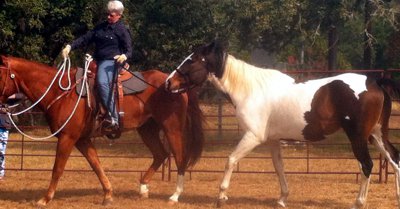Horse Feed and Care for Senior Equines?
Watching the health of a senior horse decline is not only difficult to bear, but is also avoidable. Taking certain easily-managed steps to care for your senior horse holistically can mean the difference between suffering and enjoyable old-age. When considering your senior horse, be sure to assess nutrition, teeth, stress, metabolism and organ function. Then adjust your management and feeding accordingly.
Assessing Your Senior Horse’s Condition
Nutrition for senior horses should focus on digestibility of the diet. Calories are important but if the horse can’t t digest the food the calories will be unavailable to him. There are several reasons for a senior horse to struggle with digestion.
Teeth
Horses do not have teeth like humans. Instead, horses have teeth that continually grow or “erupt,” and these teeth wear down as the horse chews. This means that as a horse ages, his teeth have shorter roots, meaning his teeth are less stable in their sockets. Shallow roots make the tooth prone to fracture or loss. Shallow roots also make grinding painful and inefficient. To prevent digestive problems in your senior horse, have his teeth checked at least once a year, although you may not need to float his teeth annually.
Stress
Young horses have the ability to bounce back from stress, but the senior horse suffers more acutely from conditions such as drastic weather changes, illness, or injury. Younger horses have a store of vitamins, minerals and antioxidants that are often depleted in the senior horse.
Decreased Metabolism and Organ Function
A senior horse will often have less energy available to digest food. Enzyme and detoxification systems can be slow or less functional. In other words the senior horse is not firing on all cylinders so he needs more fuel to function.
Nutrition for the Senior Horse
Once you have assessed your senior horse’s condition, the next step is to tailor his feed and management program appropriate to his needs. The good news is that older horses respond very well to good nutrition and solid management.
When considering your senior horse’s feeding program, be sure to offer him plenty of soft, easily digested hay. This may mean soaking good quality hay cubes if his teeth are bad. Alfalfa hay is more digestible but also higher protein. Be sure and watch for increased urination or strong smelling urine to monitor how the senior horse is handling the extra protein.
You can feed your senior horse starch in the form of grain in small amounts, but excessive grain can easily lead to laminitis or metabolic imbalances such as insulin resistance. Beet pulp is a good substitute for grain and it is safe to feed any horse. Beet pulp must be soaked before feeding.
Extra fat, such as rice bran or coconut oil, can add calories to the diet for a senior horse but it is not easily digested. Adding too much fat may actually slow down the appetite in a senior horse.
Supplements for the Senior Horse
Digestive aids such as probiotics and food based enzymes (PrePro) are extremely beneficial for the senior horse. They help him break down food and replace enzymes that are missing because he does not generate enough saliva from chewing. Saliva starts the digestive process, but since many senior horses don’t chew food well they miss this step of digestion. Less saliva combined with poorly chewed hay is a recipe for colic or diarrhea.
Provide the senior horse with nutrient dense, whole food based vitamin and mineral supplements, such as Four Hoofs. The senior horse also benefits greatly from extra antioxidants from nutrient dense whole foods such as blue green algae or herbs high in minerals such as sulfur, selenium and natural vitamin E.
Help the detoxification system of the older horse with regular additions to the diet of gentle cleansing herbs such as milk thistle, dandelion root, and leaves.
Helping your senior horse live out the remainder of his life in a comfortable and happy way doesn’t have to be complicated or difficult. Simply support his digestion and aging body with good nutrition and supplementation. He will thank you!
About the Author
Madalyn Ward, DVM, owns Bear Creek Veterinary Clinic in Austin, Texas. She is certified in Veterinary Homeopathy and Equine Osteopathy.
Memberships include American Veterinary Medical Association, American Association of Equine Practitioners, American Holistic Veterinary Medical Association, Texas Veterinary Medical Association and the Academy of Veterinary Homeopathy.
She has authored several books and publishes at her blog.
